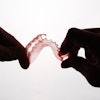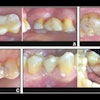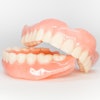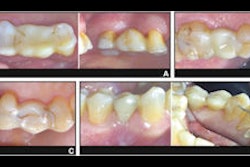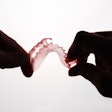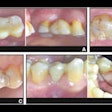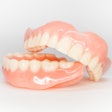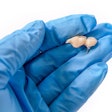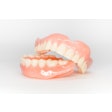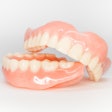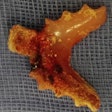Denture use may protect against cognitive decline among older adults with tooth loss, emphasizing the potential importance of prosthodontic rehabilitation in maintaining brain health. This study was recently published in Aging Medicine.
Furthermore, the findings support the connection between oral health and brain aging, the authors wrote.
"We found that denture use was associated with better cognitive function at baseline and a slower rate of cognitive decline over time among dentate participants," wrote the authors, led by Xiang Qi of the New York University Rory Meyers College of Nursing (Aging Med, December 23, 2024).
Dementia is influenced by modifiable factors such as tooth loss and impaired mastication that are linked to cognitive impairment and reduced brain activity. This study examined the relationship between denture use and cognitive health among Chinese older adults, they wrote.
The 10-year cohort study analyzed data from 27,708 adults age 65 and older in the Chinese Longitudinal Healthy Longevity Survey from 2008 to 2018, assessing cognitive function using the Mini-Mental State Examination (MMSE). The MMSE evaluated six cognitive domains, including orientation, registration, attention, language, memory, and visuospatial ability.
Using linear mixed-effect models, the relationship between denture use, baseline cognitive function, and cognitive decline, adjusting for sociodemographic, behavioral, and health factors, was examined. Subgroup analyses explored variations in associations among dentate individuals with differing tooth loss levels, they wrote.
Dentate participants with dentures had better baseline cognitive function (β = 1.032; 95% confidence interval [CI], 0.813 to 1.251; p < 0.001) and a slower annual cognitive decline (β = 0.127; 95% CI, 0.047 to 0.206; p < 0.01) compared to non-denture users.
Among edentulous participants, denture use was linked to higher baseline cognitive function (β = 3.063; 95% CI, 2.703-3.423; p < 0.001) but showed no significant association with cognitive decline rate (β = 0.011; 95% CI, -0.082 to 0.105; p = 0.818). The findings were consistent across dentate subgroups with varying levels of tooth loss, they wrote.
The study, however, had limitations. Using interview questionnaires to assess dental status, health behaviors, and health status may have introduced recall bias, the authors added.
"The findings of our study indicate that denture use is associated with better baseline cognitive function and a slower rate of cognitive decline among Chinese older adults with partial tooth loss," they concluded.

